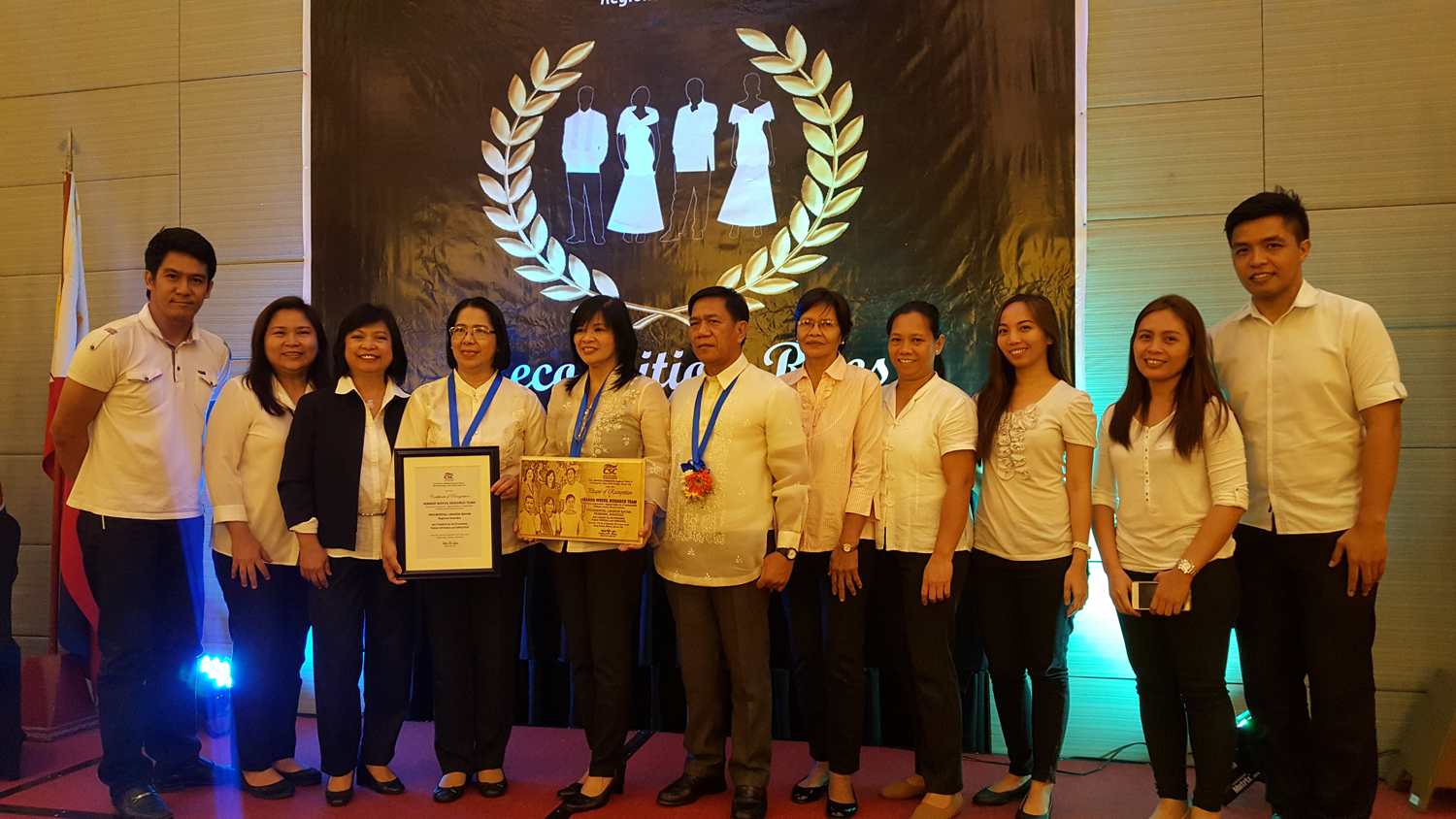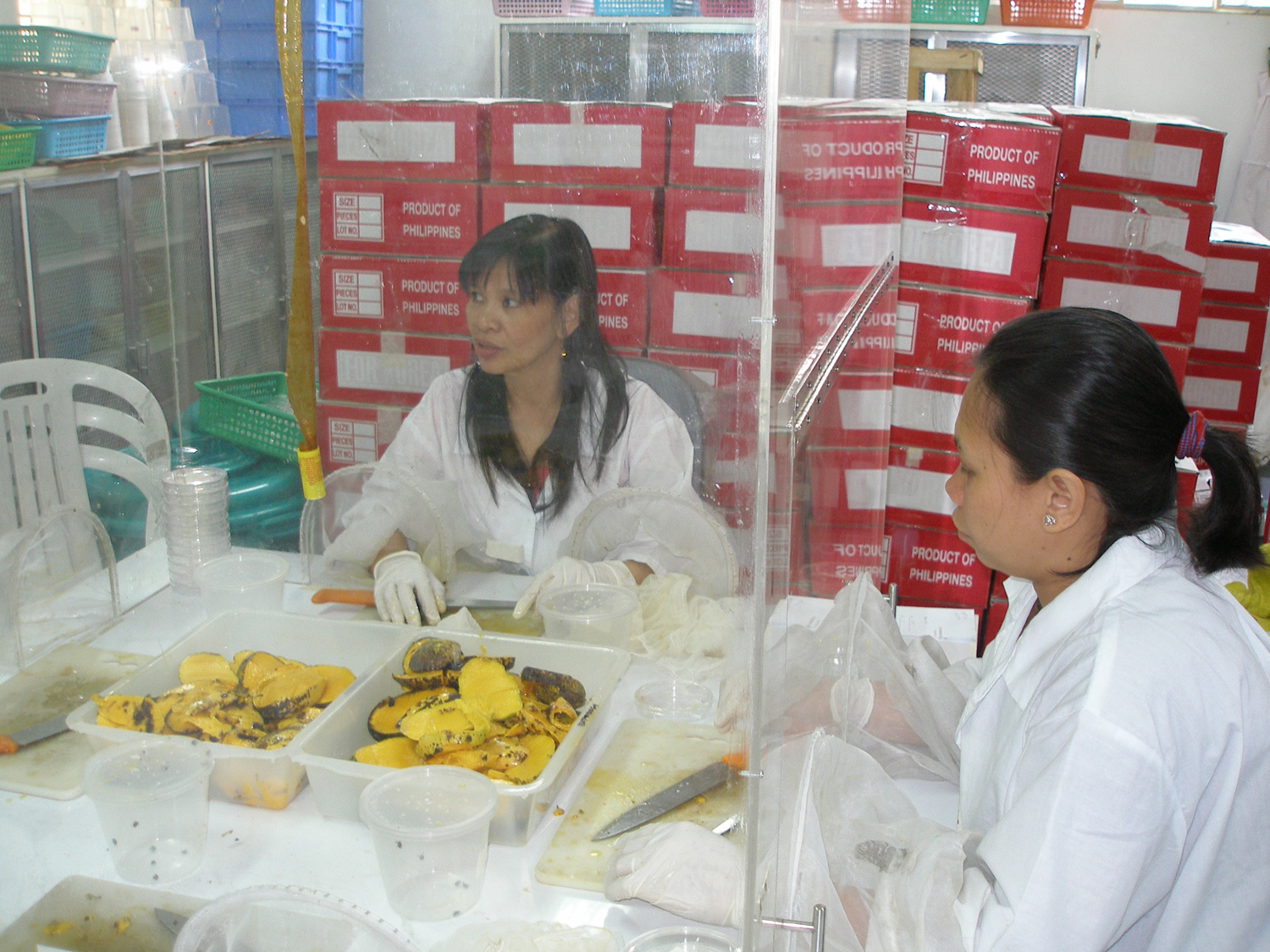
Ms. Glenda Obra, Scientist I and head of the PNRI Agriculture Research Section (5th from left), Mr. Sotero Resilva, Science Research Specialist (6th from left), and Ms. Luvimina Lanuza, head of the PNRI Irradiation Services Section (4th from left) with PNRI Atomic Research Division Chief Dr. Soledad Castañeda (3rd from left) and PNRI researchers during the awarding of the 2017 Presidential Lingkod Bayan Regional Award at the Luxent Hotel in Quezon City.

Dissection of irradiated and unirradiated mango-pulp weevil-infested mangoes at the PNRI Mango Pulp Weevil Holding Laboratory.
PNRI Researchers Win the Presidential Lingkod Bayan Regional Award
For their pioneering work in enhancing the quality of Filipino mango exports, agriculture specialists from the Department of Science and Technology – Philippine Nuclear Research Institute (DOST-PNRI) were awarded with the 2017 Presidential Lingkod Bayan Regional Award by the Civil Service Commission (CSC) as part of the Mango Weevil Research Team, which utilized irradiation as a quarantine treatment against the mango pulp weevil Sternochetus frigidus (Fabr.).
Ms. Glenda Obra, Scientist I and head of the PNRI Agriculture Research Section, along with Mr. Sotero Resilva, Science Research Specialist, and Ms. Luvimina Lanuza, head of the PNRI Irradiation Services Section, were among the awardees from PNRI on September 11 at the Luxent Hotel in Quezon City.
Also among the awardees were their collaborators from the Department of Agriculture, namely Dr. Louella Lorenzana, Mr. Edison Bauzon and Ms. Elvira Litan.
The PNRI-developed quarantine treatment, which involves exposing the mangoes to gamma irradiation, is the first and only one of its kind worldwide for mango pulp weevil. Based on PNRI’s research studies, a minimum radiation dose of 165 gray (Gy) is enough to make the adult mango weevil sterile, providing sufficient quarantine security for Philippine Super Mangoes. The irradiation treatment is also more cost-effective than the conventional vapor heat treatment, saving farmers up to half a million pesos per hectare.
Quarantine pests such as the mango pulp weevil prevent our country’s mango exports from entering international markets such as the US and other countries with strict quarantine regulations. The wasted potential aggravates the economic woes of the local mango growers and exporters who contribute a substantial share of the Philippines’ total agricultural exports.
A cooperation agreement late in 2006 between the PNRI, the DA and the US Department of Agriculture (USDA) began the development of the quarantine treatment, aiming to allow Filipino mango exports to enter the United States.
After years of research and public consultations, the quarantine treatment was finally approved in 2014 in the United States and subsequently published under a final rule in the US Federal Register. As per the final rule, the Philippines also succeeded in getting the US government to recognize most of the mango-producing regions of the country as pulp weevil and seed weevil-free areas.
Its success is also reflected by its inclusion in the USDA Plant Protection and Quarantine Treatment Manual, and the treatment will eventually be used in all countries with the mango pulp weevil, particularly in Southeast Asia.












































